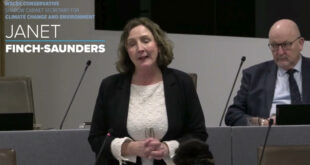STRUGGLING with debt can be incredibly stressful, but there are a number of methods you can use to get you on the way to paying it off.
With energy bills forecasted to hit £3,612 this winter and inflation running rampant, paying off your debts can be difficult.
1
However, there are tactics you can use – and extra help available – that could help you become debt free.
From snowballing to paying off your highest interest debt first, we explain how to approach wiping your finances clean.
The Sun spoke to expert Jonathan Chesterman from debt charity StepChange.
The debt advice policy manager talks through his top tips .


Make a budget
Jonathan says this is the single most important thing you can do before tackling what you owe.
He said: “The first step when you’re dealing with debts is to understand how much money you have coming in and going out each month.
Make a budget to see if you can make any savings in other areas, so you’ll be able to pay more towards your debts.
It can also help you identify areas where you’re overspending, so you can try and cut back, and avoid getting into further debt.
There’s a number of useful tools online which can help you set up an easy budget.
MoneySavingExpert.com offer a simple to use budget spreadsheet, and there’s a free budgeting tool from the government that could help you get on top of things.
You could also try a budgeting app, there are lots out there and many are free – we tested some of the best, and they could help you save thousands.
Once you’re budget ready you’ll be able to visualise your debts.
It’s important to then identify whether any debts are attached to what Jonathan classes as ‘priority bills’.
That’s because the consequences of not paying them are greater than with others, though you should still keep up with all your repayments.
Priority payments include rent or mortgage, and council tax.
Talk to your creditor
Talking to your creditor can help you better plan out how you’ll be expected to pay off your debts, but also when you can aim to pay them off.
A creditor is anyone you owe money to, like a credit card company, mortgage provider or even an energy company.
Don’t bury your head in the sand, in the first instance of getting into debt you should always give your creditors a ring.
If you don’t you could face late payment fees and your debt may continue to spiral.
The help you’ll get will depend on the firm, for example energy firms could provide a one-off grant and credit card companies may give you a payment holiday.
Jonathan said: “You might be able to negotiate a payment plan with your bank, or take advantage of a grant that can pay off some or all of a utility bill.
“Also, many creditors will agree to give you breathing space with a payment holiday while you sort out your finances.
This is a temporary arrangement where they may freeze interest and charges for a short time”
If you’re looking for targeted debt support, the government’s Debt Respite Scheme, also known as Breathing Space, is key.
It’s free to use and someone in debt the right to legal protections from their creditors.
Under the scheme, people can freeze most interest, fees and charges on debts and pause enforcement action and contact from creditors.
This “breathing space” period can then be used to proactively get on top of the support available on offer from your creditor.
Pay off highest interest debts first
Once you’re ready to begin the process of becoming debt free, there are many ways to pay back what you owe.
Some find merit in using the “debt snowball” method. Here one begins by paying off their smallest debts first.
You’ll then move on up to pay off the bigger debts after your smaller ones are paid off.
Others may find the opposite approach more useful. This is when the “avalanche method” comes into action.
This method sees you pay off your biggest debts first and then progressively move down to pay off your smallest debts last.
However, Jonathan said that your best start comes when paying off your highest interest-bearing debts first.
He said: “You may have to wait longer to fully clear some of your accounts, but it will be a cheaper and more efficient way to clear your debt in the long run.”
Doing this means you’re paying less interest overall because you’re racking up less of it by paying of the debt.
It can save you more in the long-run than using the traditional avalanche method – which only focuses on the total debt amount.
Get a balance transfer credit card
Some credit cards let you transfer the balance from another card.
You’ll need to get accepted for one first and if your credit score is poor now you may find it harder to get one, or access the best deals.
However, for those who do get accepted, Jonathan said: “Transferring a debt from a card with a high rate of interest to one with low or 0% interest may help you pay off the debt faster.”
For example, Sainsbury’s Bank currently offers a balance transfer credit card paying 0% interest for up to 34 months.
Santander closely follows by offering 0% interest on it’s balance transfer card for 33 months.
Jonathan warned that you should look out for fees when transferring a balance. Most credit card providers charge 2-3% of the amount you’re transferring as a one-off fee.
If you’re transferring a balance to take advantage of a lower interest rate, the fees may mean you save less than you expect so do your research.
And be careful, as soon as the 0% period is over you will have to pay high rates again, so make sure to pay off your debt in the interest free period or your debt will just continue to grow.
And don’t be tempted to use the new card for spending, or else you’ll risk getting into more debt.
What to do if you’re struggling with debt
If you are looking for general help and advice to help you manage your debt, there are a number of charities and organisations that may be able to help:
You can contact National Debtline on 0808 808 4000.
An adviser will ask you about your income and spending, so try and have as much information to hand as possible when you call.
They will help you work out what you can afford to repay, and help you decide on the best solution for your debt.
Self-employed workers can also get help through Business Debtline.
Step Change can be contacted on 0800 138 1111.
It can talk you through different options such as debt management plans (DMP), individual voluntary arrangements (IVA), bankruptcy, and debt relief orders (DRO) if they are appropriate.
Citizens Advice is also available on 0808 800 9060.
It is a free and impartial service, and it can help you come up with a plan to getting on top of your debt including which payments to prioritise and how to reduce your living costs.
The organisation’s website has a useful page with advice on many aspects of debt, but you can contact it for more personalised help.
Local organisations may also be able to provide support in your area.


National Debtline also recommends contacting organisation such as Mind, Samaritans and Anxiety UK if debt worries are affecting your mental health.
A benefits calculator can help you work if you might be entitled to extra cash.


